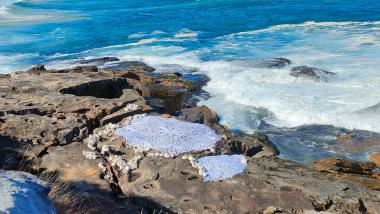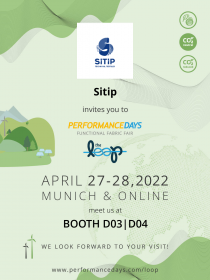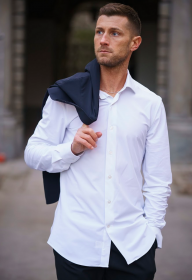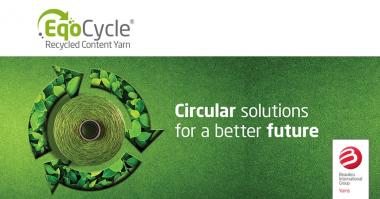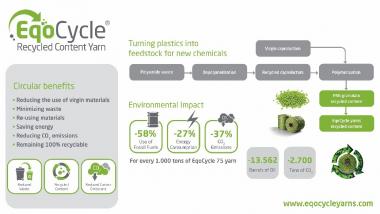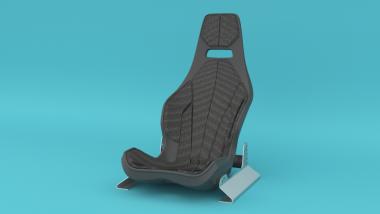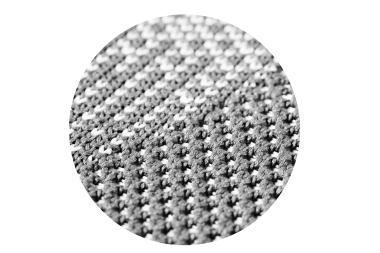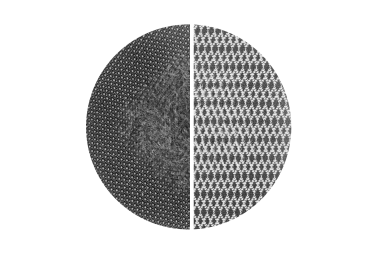Sitip fabrics to feature at "Sculpture by the Sea" in Australia
On display at Sculpture by the Sea, the land art event that brings the Sydney coastline to life every year, is “Seabilia”, Elena Redaelli’s latest work created using waste fabric from Sitip’s production processes. A creation that draws attention to the environment and its fragility in the face of human activity, “Seabilia” is a reminder of how precious yet delicate this balance is, and how humans must become mindful of their actions before the effects end up being completely irreversible.
Sitip's commitment to environmental sustainability struck a chord with Elena Redaelli, and a meeting between the Bergamo-based textile company and the artist from Erba, Italy, led to “Seabilia”, a work that will be displayed as part of Sculpture by the Sea on Tamarama Beach near Bondi in Sydney.
It’s one of the most popular events to take place in this corner of Australia, attracting half a million visitors who flock to these Aussie beaches to admire more than one hundred works created by artists from all over the world.
Held since 1997, this event captures the imagination of its visitors for three weeks each austral spring and, thanks to the vast area it covers, has earned the title of largest annual sculpture exhibition in the world.
The 2023 edition, scheduled to take place from 20 October to 6 November, will feature Elena Redaelli's work created using waste Native-Cosmopolitan Kyoto fabric which, having failed the company's quality control tests, was donated to the artist.
A post-consumer recycled circular knit fabric composed of 89% recycled polyester (PLR), 11% elastane (EA), and weighing 240 grams, the Native-Cosmopolitan Kyoto is made from recycled yarns derived from plastic waste that’s been recovered from the environment, particularly from the sea and from recycling centres. The fabric is Bluesign, GRS (Global Recycled Standard) and OEKO-TEX certified, attesting to Sitip's commitment to environmental responsibility and protection.
During the process, the artist hand-cut the waste fabric and crocheted the pieces together using recycled cotton and other types of thread.
In the creative mind of the artist, the genesis of “Seabilia” arose from deep in the ocean where tiny creatures inhabit the darkest, least explored parts of the planet. A place where the rhythm of life for the inhabitants is marked by silence and obscurity, while waves and tides agitate the surface above. The life of the ocean, such a vast and imposing environment, is impacted every single day by human activity, slowly weakening its delicate balance. “Seabilia” is intended to act as a reminder of how precious yet extremely fragile this balance is, and how humans must become more aware of the consequences of their actions before it’s too late and such a vital asset is lost forever.
“Following Emersione, a work that was exhibited at the Ex Ateneo in Bergamo during Fiber Storming, a textile art exhibition organised by ArteMorbida Textile Arts Magazine and curated by Barbara Pavan, Seabilia is the second art project where I’ve had the opportunity to utilise SITIP's fabrics. – explains the artist, Elena Redaelli. As it was going to be displayed on the rocks at Tamarama Beach, my installation needed a durable, elastic fabric with structural characteristics capable of withstanding ocean winds and sudden changes in weather. Using waste Native-Cosmopolitan Kyoto fabric was the obvious choice, not just because of its very high quality, but also, and more importantly, because it’s made from recycled yarns derived from plastic waste that’s been recovered from the environment, often even from the sea itself. The different textures and shades of white enabled me to create a varied work that, despite the almost monochromatic tones, conjures a diverse range of tactile sensations. The biomorphic modular composition evokes skeletons of sea creatures that appear to have been deposited onto the rocks by a wave and left there to wither in the blazing Australian sun.”
Sitip


